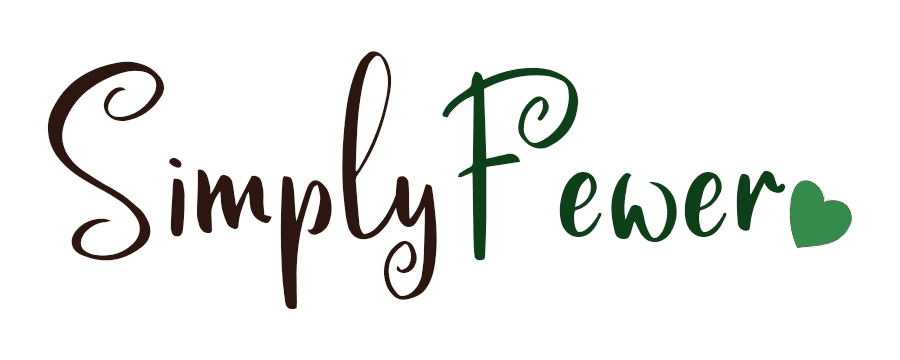You’ve made it through the handshakes, the “Tell me about yourself” pitch, and the curveball questions about weaknesses. Now, the interviewer leans in and says, “Do you have any questions for us?” Your mind races. Do you ask about lunch breaks or just smile and say no?
Spoiler alert: saying “no” is a missed opportunity.
That final part of the interview isn’t just a courtesy—it’s your moment to shine. In this article, we’ll walk you through what questions to ask at the end of an interview that show you’re engaged, thoughtful, and the right fit for the job.
Table of Contents
Why Asking Questions Matters
Asking the right questions isn’t about filling time or being polite. It’s about strategy. Think of the interview like a two-way street or even a first date. You’re not just trying to impress; you’re also gathering information to see if this company fits your needs, values, and long-term goals.
Hiring managers notice who asks questions—and what they ask. According to a LinkedIn study, candidates who ask thoughtful questions are seen as more invested and confident.
It’s like walking into a home you might buy. You wouldn’t just look around and say, “Nice place.” You’d ask about plumbing, neighborhood noise, or renovation history. Interviews work the same way. Your questions reflect your interest and foresight.
Pro Tip: Have 3–5 questions ready. You may not get to ask them all, but you’ll be prepared.
Questions About the Role
Start with what you’ll actually be doing. You’ve read the job description, but roles often evolve, and job postings can be vague.
Examples of questions to ask:
- “What does a typical day look like in this role?”
- “What are the immediate priorities for the first three months?”
- “Can you describe the team I’d be working with most closely?”
These questions help you understand how the role fits into the bigger picture. It’s like checking the ingredients on a food label—not just the pretty packaging.
Anecdote: One candidate I coached asked about cross-department collaboration. The hiring manager lit up, explaining how the team was launching a new initiative. That sparked a deeper conversation—and the candidate got the job.
Tip: Avoid asking things you should already know from the job description. Focus on uncovering hidden layers.
Questions About Company Culture
Culture isn’t just a buzzword. It’s the unspoken glue that holds a workplace together. Asking about it can help you gauge whether you’ll thrive or struggle.
Try asking:
- “How would you describe the team culture here?”
- “How does the company support work-life balance?”
- “What values are most important to your team?”
These questions give you a backstage pass to the company’s personality. Is it collaborative? Competitive? Family-oriented? Fast-paced?
Metaphor: Culture is like the climate in a region. You might love the job (the scenery), but if you can’t stand the climate (the culture), it won’t be sustainable.
Expert Insight: Career coach Sarah Johnston says, “Culture fit can make or break your happiness in a role. It’s one of the top reasons people leave jobs.”
Questions About Growth Opportunities
If you’re someone who’s thinking long-term (and you should be), you’ll want to ask about development and career paths. Companies that value employee growth usually love when candidates show a growth mindset.
Sample questions include:

- “What learning and development opportunities are available?”
- “How do you support career growth within the company?”
- “Can you share an example of someone who advanced from this role?”
These show you’re serious about contributing and wanting to grow with the company, not just collect a paycheck.
Real Story: A client of mine once asked a recruiter this exact question. The recruiter shared how one analyst had become a director in five years. That became a key reason the candidate chose the job.
Questions About Management Style
Your relationship with your manager can influence your experience more than almost anything else. Asking about their leadership style can help you assess fit.
You might ask:
- “How would you describe your management style?”
- “How do you typically give feedback?”
- “How do you support your team when challenges arise?”
This gives you a peek into how you’ll be supported (or micromanaged). Knowing what to expect can prepare you for success—or steer you away from a mismatch.
Metaphor: Managers are like coaches. Some bark orders, others inspire, some give you playbooks. Which kind do you work best with?
Tip: Listen for language. Words like “trust,” “mentorship,” or “autonomy” can signal a healthy leadership approach.
Questions About Challenges and Expectations
If you want to stand out, ask about what keeps the hiring manager up at night. It shows empathy and initiative.
Questions to consider:
- “What challenges do you foresee for this role in the next six months?”
- “What’s something someone in this position has struggled with before?”
- “What would success look like in the first year?”
These questions show that you’re thinking like someone already in the role, not just someone trying to land it. You’re assessing risk and preparing to meet it head-on.
Expert Quote: “The best candidates are those who ask, ‘How can I make your life easier?’ That’s gold,” says hiring expert Lou Adler.
Questions About Team Dynamics
Work isn’t just about tasks—it’s about people. Asking about your future team tells employers you care about collaboration and morale.
Ask things like:
- “How does the team communicate during projects?”
- “How are conflicts handled or resolved within the team?”
- “What’s the team’s approach to celebrating wins?”
You’ll get insight into how cohesive and emotionally intelligent the group is. Do they back each other up? Or is everyone in survival mode?
Tip: Pay attention to facial expressions and pauses in the answer. Sometimes what’s not said speaks volumes.
Questions to Clarify the Hiring Process
It’s easy to leave an interview wondering what’s next. Wrap things up with clarity so you’re not left in the dark.
You might ask:
- “What are the next steps in the interview process?”
- “When can I expect to hear back?”
- “Is there anything else I can provide to help with your decision?”
Not only does this signal your continued interest, but it gives you a roadmap for following up and staying confident in the meantime.
Anecdote: One candidate I know followed up exactly when the recruiter said they’d get back to her—and the recruiter thanked her for being so organized.
What Not to Ask
Not all questions are created equal. Some can actually hurt your chances. Avoid anything that focuses too heavily on “what’s in it for me” or suggests you haven’t done your homework.
Avoid these:
- “What does your company do?” (Big red flag)
- “How much vacation time do I get?” (Save this for later)
- “Can I work from home all the time?” (Unless clearly stated)
Tip: Save benefits and policy questions for HR or later interview rounds, unless the interviewer brings them up first.

Remember: You’re building a relationship. Focus on curiosity, contribution, and compatibility.
Conclusion: Your Questions Matter
The end of an interview isn’t the end of your chance to impress—it’s the beginning of your opportunity to stand out. Asking smart, thoughtful questions shows that you’re not just prepared—you’re professional, curious, and invested.
From culture and growth to team dynamics and challenges, the questions you choose can paint a picture of your values and vision.
So next time you hear, “Do you have any questions for us?” take a breath and smile—because you do.
FAQs
What are good questions to ask at the end of an interview?
Good questions include ones about team dynamics, company culture, growth opportunities, and expectations for the role.
How many questions should I ask at the end of an interview?
Aim for 3–5 well-prepared questions. If they’ve already been answered, adapt on the spot or ask for clarification.
Is it OK to ask about salary or benefits at the end of an interview?
Generally, wait until the employer brings it up or save it for the final interview or HR discussion.
Can I bring a list of questions to the interview?
Absolutely! It shows preparation. Just make sure they’re relevant and not overly scripted.
What if I forget my questions during the interview?
Don’t worry. Take a moment to pause, or say, “I had a few written down—would you mind if I referenced them?” It’s totally normal.

